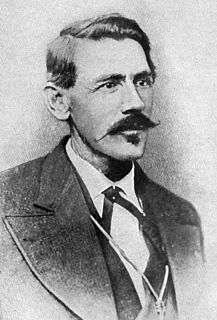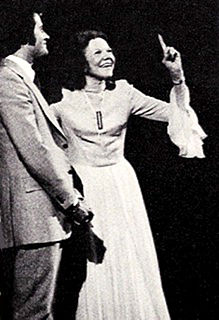A Quote by D. A. Carson
Both God's love and God's wrath are ratcheted up in the move from the old covenant to the new, from the Old Testament to the New. These themes barrel along through redemptive history, unresolved, until they come to a resounding climax - in the cross.
Related Quotes
It's not as if the New Testament writers came along and said, "The culmination of Old Testament books is more books, New Testament books." In some ways they thought instead of the culmination of Old Testament books being Christ himself, the word incarnate as the opening verses of Hebrews 1 put it. In the past God spoke to the fathers by the prophets, but in these last days he has spoken to us by his son and the son is revelation.
Many who are convinced that God is non-violent simply dismiss the Old Testament accounts of God commanding or engaging in violence. I don't consider this to be a viable option, for Jesus treats the whole Old Testament as the inspired Word of God. My cross-centered interpretation of these violent portraits allows believers to affirm that God is non-violent while also affirming that all Scripture is "God-breathed.".
I do think you can see, throughout American history, this temptation, and it's both a liberal and a conservative temptation, to take a healthy patriotism a little too far. For liberals the temptation is to say the purpose of politics is to straightforwardly bring the kingdom of God to Earth. For conservatives, I talk about Glenn Beck, the temptation is more apocalyptic and messianic, it's the temptation to say we did have a covenant with God, a literal covenant beginning with the Founding, and we are, like Israel in the Old Testament, falling away from it.
In the new covenant, God doesn't want us to be blessed when we obey the law and cursed when we fail. Doesn't such a system sound awfully similar to the old covenant? Grace is the undeserved, unmerited and unearned favor of God - the moment you try to merit the free favors of God, His grace is nullified.
It seems to me impossible for a civilized man to love or worship, or respect the God of the Old Testament. A really civilized man, a really civilized woman, must hold such a God in abhorrence and contempt... In the New Testament, death is not the end, but the beginning of punishment that has no end. In the New Testament the malice of God is infinite and the hunger of his revenge eternal... This frightful dogma, this infinite lie, made me the implacable enemy of Christianity. The truth is that this belief in eternal pain has been the real persecutor.
We go from Malachi to Matthew in one page of our scriptures, but that one piece of paper that separates the Old Testament from the New Testament represents 400 years of history - 400 years where there wasn't a prophet, 400 years where God's voice wasn't heard. And that silence was broken with the cry of a baby on Christmas night.




































